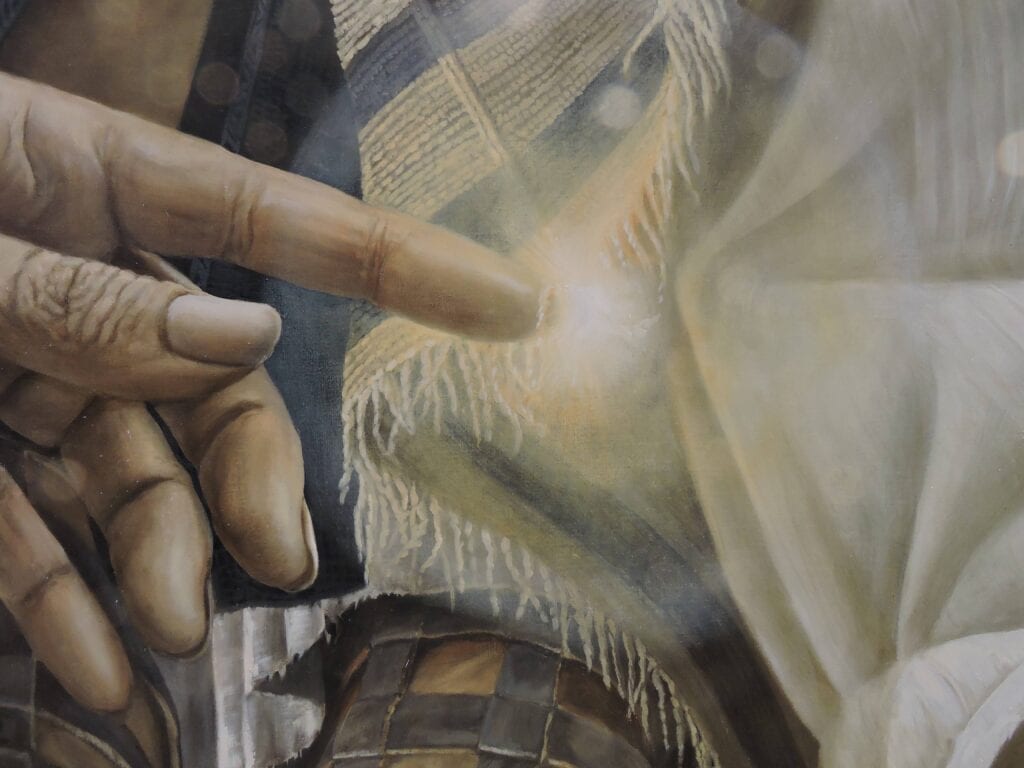The story of the healing of the paralytic man in Matthew’s gospel reading continues to resonate even after two thousand years. All three synoptic Gospels (Mt. 9: 1-8, Mk. 2: 1-12, and Lk. 5: 17-26) include this story. In a few short paragraphs, we are given a rich account of friendship, faith, doubt, forgiveness, and healing.
Faith and Friendship
One of the most endearing aspects of the story is the interplay between the paralytic man, his friends, and their shared faith in Jesus. At first glance, the paralytic man seems to be a passive player in the story of his salvation. It is his friends who are doing the carrying and approaching Jesus.
However, when I reflect on how the ‘pre-story’ might have played out, it seems clear to me that the request to be taken to Jesus must have been initiated by the paralytic. He was fortunate enough to have friends who shared his faith and cared enough to put themselves out for him. We must remember that one of our primary earthly goals is to help each other get to heaven. In the case of the paralytic man, his friends were literally the hands and feet drawing him into a relationship with our Savior.
Faith versus Doubt

The story makes clear that Jesus, “seeing their faith,” tells the paralytic man, “Your sins are forgiven.” Apparently, some of the learned Pharisees and Scribes in the audience took offence at Jesus’s words. In their worldview, only God could forgive sins, and even then, only under the strict provisions of temple sacrifice.
Were the Pharisees and Scribes uniquely evil in their doubts? No – we deceive ourselves if we take this view and fail to see ourselves in their position. Their failure was in clinging to their concept of what the Messiah would be – an earthly political and military leader who would throw off the oppressive Roman occupation. They left no room for God to exceed their expectations by coming Himself. How often do we fall into the same trap of doubt? Bent under the tribulations of life, we fail to place our problems at God’s feet and put our trust in Him.
Forgiveness and Healing
A curious sequence of events in the story is that Jesus forgives the paralytic’s sins before addressing his physical condition. Why is this?
I think we can consider at least two explanations. First, Jesus addresses the Pharisees and Scribes in the group. He knows their doubts and He offers them another chance for faith by performing a miracle of healing. A perfect example of Christ’s continual outreach to us in the midst of our sinfulness.
A more personal and powerful reason that Jesus forgave the paralytic man’s sins before healing his paralysis is that Jesus, in His infinite wisdom, knew that is what the paralytic needed. In first-century Jewish culture, physical infirmity was closely associated with sinful behaviour.
What if the paralytic man believed this about himself? What a terrible double burden to bear! What good would it have been for Jesus to heal the paralytic’s body if he still had the conviction that he was degraded in God’s sight?
Truly we are all sinners in need of forgiveness. We are fortunate to have the sacraments of Reconciliation and the Eucharist to receive God’s forgiveness and unconditional love. We are also fortunate to have the Lord’s prayer to remind us of our need to pass on this forgiveness to others!
[Readings for Thursday Week 13: Amos 7:10-17; Matthew 9:1-8]
Note from the President
I would like to thank John and Kathy for their years of writing GVM reflections. Both are now officially retired from the workforce and will spend time traveling and spoiling their grandchildren. Thanks again, and maybe we’ll call you in as pinch writers or editors sometime. – Paul Verderber
